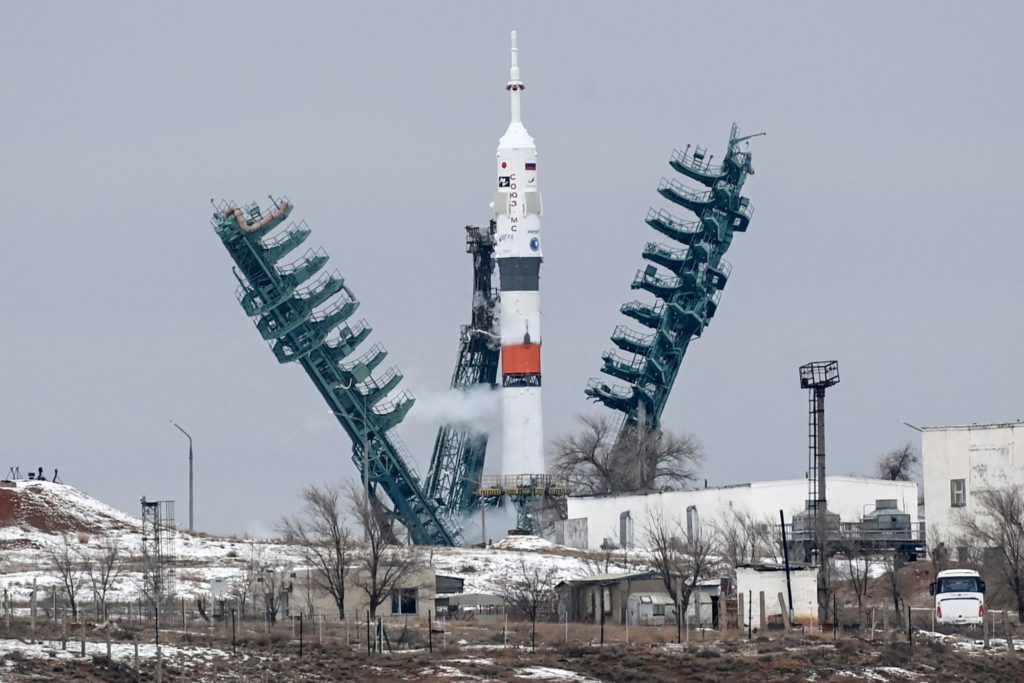(Bloomberg) — Russia’s space program suffered a fresh setback after Europe’s space agency said it is suspending plans to collaborate on a Mars mission because of President Vladimir Putin’s invasion of Ukraine.
The European Space Agency announced Thursday that member countries agreed they cannot continue working with the Kremlin’s Roscosmos on their ExoMars mission, which had been scheduled to launch in late September or early October. The mission was supposed to include a Russian surface platform and launch aboard a Russian rocket.
ESA also said it will put other missions on hold, including the Euclid space telescope and several Galileo navigation satellites, planned aboard Russia’s Soyuz rockets.
The ESA announcement follows the cancellation by OneWeb Ltd., backed by the U.K. government and Indian billionaire Sunil Mittal, of a scheduled March 5 launch of 36 satellites after state space corporation Roscosmos demanded the U.K. sell its stake in the company. OneWeb is looking for alternative services for six future launches.
The cancellations will cut off an important source of cash for Russia’s space program, which was already struggling, according to Jonathan McDowell, an astrophysicist at the Center for Astrophysics, which is operated by Harvard University and the Smithsonian Institution.
“The Soyuz was the one bright spot, with OneWeb and other European collaboration,” said McDowell. “The future of the Russian space program does not look good.’
Dmitry Rogozin, director of the Russian space program, criticized Western sanctions last month. “Do you want to ban all countries from launching their spacecraft on Russian rockets, the most reliable ones in the world?” he wrote in a series of tweets translated by Rob Mitchell for Ars Technica.
ExoMars was already behind schedule after technical issues and the Covid-19 pandemic led the agencies to postpone a planned launch in 2020.
Russia has a history of failed attempts to explore the Red Planet, dating back to the early days of the Cold War space race. More recently, a spacecraft bound for Mars crashed back to Earth in 1996.
In 2011, Russia launched a mission to land on a Martian moon, but the spacecraft failed after it didn’t escape Earth’s orbit.
More stories like this are available on bloomberg.com
©2022 Bloomberg L.P.











